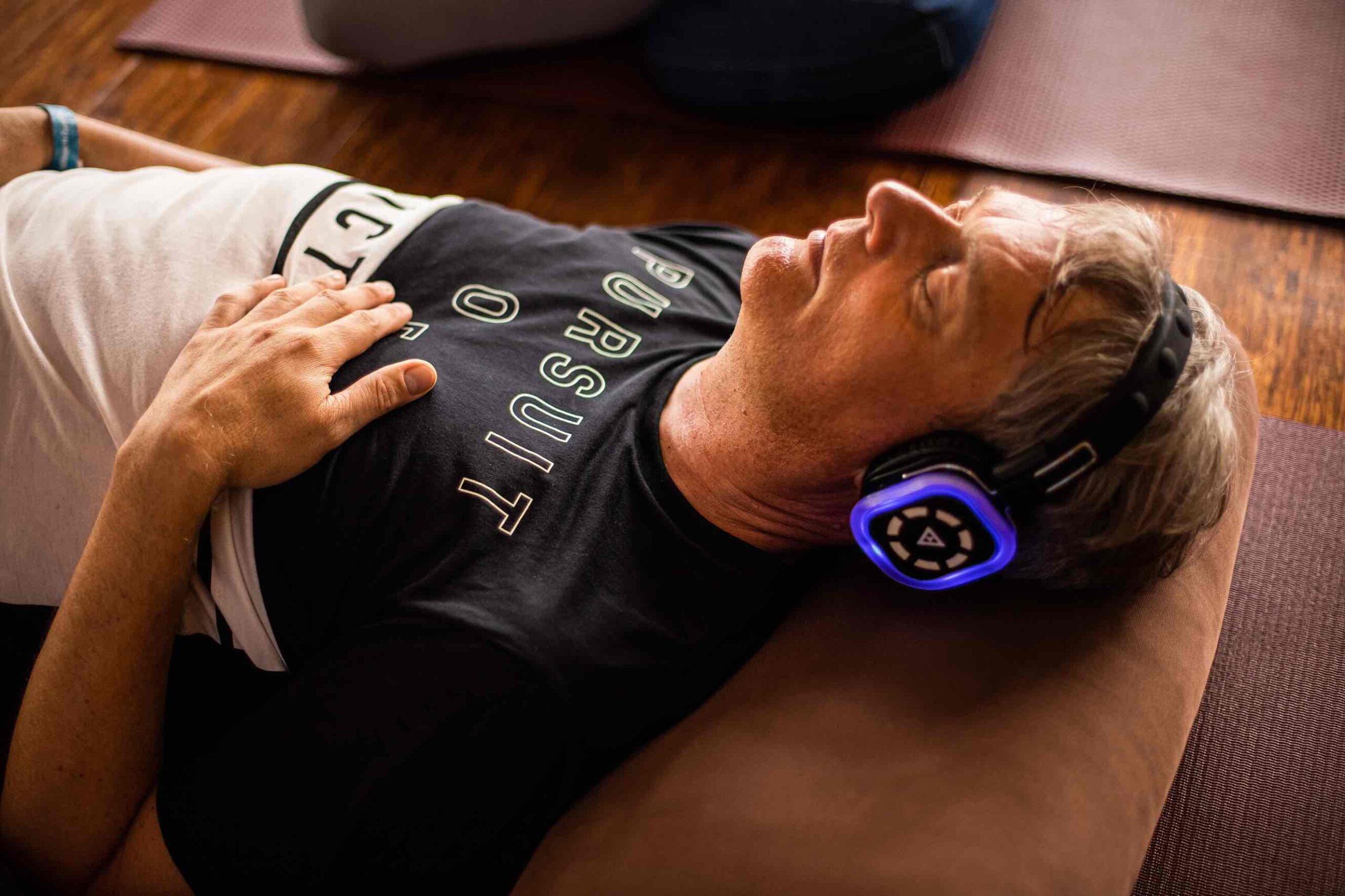Bad habits are often a result of our rewards system gone awry. Learn how the right techniques and practices can bring you back to balance and support you on your journey to life long recovery from addiction.
Every single one of us will, at some point in our lives, grapple with a habit that does not serve us. We will all encounter someone, whether in our inner circle or outside of it, who battles their addictions, and hopes to overcome them. You may even be that person. You may be in the process of finding a path to recovery, in need of some tools and techniques to help you on your healing journey.
The path to recovery
The road to recovery and transformation is different for everyone. Luckily, there are various resources available to us to help us change our negative habits and recover from our addictions.
- You could pick up a self help book (or guide specific to the habit you are seeking to shift), such as The Power of Habit by Charles Duhigg.
- You could join a support group, like Alcoholics Anonymous or Narcotics Anonymous, that offer 12 step programs as well as community support from people who have faced similar challenges in their lives.
- Finding a therapist who practices Cognitive Behavioural Therapy can be effective for treating certain addictions and harmful habits.
- In some cases, Medication Assisted Treatment has been used successfully to manage withdrawal and curb cravings.
- There are some amazing apps on the market that assist in helping us break bad habits, from Quit Genius for smokers to My Limit for those looking to track their alcohol intake.
- If you are looking for a more structured and intensive support system, an inpatient rehabilitation center might be the right choice for you. These centers provide a hands-on approach and a controlled environment that is dedicated to helping individuals overcome addiction and bad habits.
What many of these methods have in common is a component of prayer, mindfulness, or meditation. These modalities all recognise the power of the breath as a means of regulating our nervous systems, resetting our mental state and interrupting unhealthy patterns of behavior.
In this article, we will be exploring the role conscious breathing practices have on changing our behavior, and how breathwork can be used to support recovery from addiction.
Habits vs. addictions
Put simply, a habit is a behavior or action repeated over time that becomes unconscious. The more a habit is reinforced, by repeating that set of behaviors, the stronger the neural pathways become. This can make it challenging to shift that habit. The good news is, thanks to the brain’s ability to adapt, a process called neuroplasticity, you can actually replace a bad habit with a good one by creating new neural pathways you consciously reinforce.
Both bad habits and addiction share one thing in common: the repetition of behavior. However, a bad habit does not disrupt your daily life or cause you great harm. An addiction, on the other hand, is a compulsive and self destructive behavior, often involving a substance, that provides a sense of pleasure, relief, and escapism. Over time, addictions can spiral out of control, leading to serious negative, life altering consequences.
Bad habits: the reward system gone awry
Though there is much debate on the subject, from a biological standpoint, bad habits and addictions are a result of the biological reward system gone wrong.
Dopamine is released by the brain as a reward for engaging in behaviors essential to our survival, like eating and drinking, creating a feeling of satisfaction and pleasure so we continue to do them.
We become addicted to a substance or behavior when too much dopamine is released, resulting in intense sensations of pleasure. This feeling then becomes neurologically and biologically linked to that substance or behavior, resulting in cravings and withdrawal symptoms when the individual is attempting to quit. When our reward system becomes altered in this way, a person may prioritize this addiction over every other aspect of their lives, including their family, work commitments, and their health.
Along with other therapies and support groups, a breathwork and meditation practice can aid one’s recovery by interrupting this process and rerouting your neural pathways into healthier, more functional directions.
The power of breathwork and meditation for recovery
Meditation has been a game-changer for me in my journey of recovery. It has allowed me to cultivate self-awareness, reduce my anxiety, and connect with a higher power.
– Russell Brand
Comedian and actor Russell Brand is a passionate advocate for breathwork and meditation as a tool for recovery from addiction. Brand believes these practices have been an essential part of his daily routine, crucial to overcoming his triggers and cravings, and the key to his successful journey towards life long recovery.
But how exactly can breathwork and meditation help us overcome negative habits and addictions?
Interrupting Patterns
When you practice breathwork and meditation, your attention is on your breath, mantra, or the voice of your mindfulness practitioner. This “pauses” the automatic stream of thoughts, and allows you to “watch” what you’re thinking, instead of immediately taking action, or emotionally reacting, to what you’re thinking. This helps to disrupt the thought patterns that are behind your negative habits and addictions, meaning you can choose to take a different action, approach and attitude, instead of falling back into unhealthy habits.
Reducing stress and anxiety
Breathing exercises and meditation activate the body’s relaxation response, controlled by the parasympathetic nervous system. Also known as the body’s “rest and digest” state. This response slows your heart rate, brings down blood pressure, and softens muscle tension, resulting in a feeling of relaxation, peace and fulfillment. Recent research strongly suggests that stress can be a major contributing factor to the initial development of addictions, and that managing your stress and anxiety can play a pivotal role in preventing a relapse.
Increasing self awareness
By becoming more aware of what you’re thinking, breathwork and meditation can help you foster a high level of self-awareness. This enables you to become conscious of your emotions, as well as any physical sensations, allowing you to make better decisions. Through meditation, you are able to view yourself and your thoughts without judgment and reactivity, nurturing self compassion and self acceptance. You are then able to manage your thoughts and emotions in a productive way. By introducing a practice like this to your daily routine, you are strengthening your ability to manage any cravings or impulses that arise. This inner resilience means you are better equipped to handle anger, fear and anxiety, so you don’t resort to bad habits and addictive behaviors as a coping strategy.
Success of mindfulness in treatment centers
Recovery centers all around the world have incorporated meditation and breathwork into their programs with positive results. These mindfulness practices are often used in tandem with behavioral therapy, medication assisted treatment and support groups. If you are seeking treatment for recovery from addiction, it’s always best to speak to a mental health practitioner who can create the right treatment plan specifically designed to suit your needs.
Some examples of centers that utilize mindfulness practices and techniques include The Oaks at La Paloma in Memphis Tennessee, US, who use breathwork as part of their holistic approach to recovery, as well at The Holistic Sanctuary in Bali, Indonesia, who include alternative therapies like breathwork in their treatment plans. Although most success stories are anecdotal, a significant amount of promising research is now being done into the efficacy of meditation and breathwork for recovery from addiction.
Breathwork therapies that have shown the most potential for addiction recovery are holotropic breathwork, involving conscious breathing and personal growth visualizations; controlled breathing techniques, like diaphragmatic breathing, which helps reduce cravings and regulate emotions; and rebirthing breathwork, continuous circular breathing designed to release pent up emotions.
Scientific studies
Several scientific studies have illustrated the potential benefits of breathwork as part of therapeutic intervention for various conditions, including addiction. One study, published in the Journal of Substance Abuse Treatment, found that participants who practiced breathwork reported fewer symptoms of depression, anxiety and cravings. Another study, published in the International Journal of Yoga, reported that breathwork was highly effective at lessening symptoms of anxiety and depression in those suffering from substance use disorders. There is also compelling evidence from recent studies that suggest breathwork can have profound and positive effects on neural health and function, which would have an impact on recovery programs and the treatment of addiction.
Incorporate breathing techniques into your routine
The Pantheon Method is a unique combination of breathing and meditation techniques that utilizes rhythmic breathing, meditation on the seven energy centers in the body, and binaural sounds, to help you achieve a state of balance, clarity, and contentment. This method, inspired by an ancient yogic kriya, is designed to clear emotional blockages and cultivate states of flow. The use of specific sound frequencies and headphones creates an immersive experience that can change your brainwaves and activate different states of consciousness.
Join our online community to practice and heal using this ancient wisdom of yoga in today’s stress-filled world.




